detail profile vicco von b c3 bclow
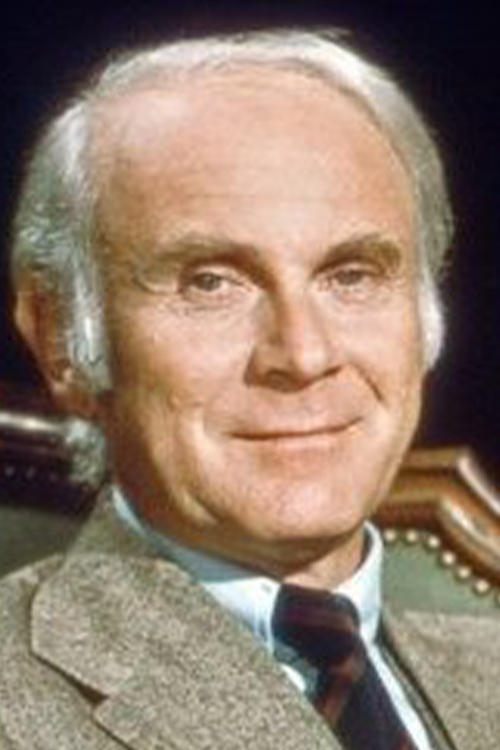
Vicco von Bülow
Loriot
atau dikenal sebagai
Riwayat Hidup
Bernhard-Viktor Christoph-Carl von Bülow (12 November 1923 – 22 August 2011), known as Vicco von Bülow or Loriot was a German comedian, humorist, cartoonist, film director, actor and writer.
As an artist, he was almost exclusively known under his pen name Loriot, which is the French term for the bird oriole depicted as a crest in the coat of arms of the Bülow family.
He was best known for his cartoons, the television series Loriot (1976-78) and his two movies, Ödipussi (1988) and Pappa Ante Portas (1991).
On the television series Unsere Besten (Our Best), Loriot was ranked the 54th best German ever.
In a special comedy episode of Unsere Besten, he was ranked as the most famous German comedian ever.
Info Pribadi
Peran Yang Di Mainkan Vicco von Bülow
 Documentary about German comedian Loriot alias...
Documentary about German comedian Loriot alias...Loriot 100 2023
Documentary about German comedian Loriot alias Vicco von Bülow, who would have been 100 years old in 2023.
 Loriot whose real name was BernhardViktor...
Loriot whose real name was BernhardViktor...Loriot's Great Cartoon Revue 2023
Loriot, whose real name was Bernhard-Viktor Christoph-Carl von Bülow, or Vicco von Bülow for short (1923-2011), is considered to have been the greatest and most versatile German comedian of the twentieth century. From 1976 to 1978, Radio Bremen commissioned his six-part television series “Loriot”, in which live action skits alternated with short animated sketches. The series is believed to be the highpoint of Loriot’s television work and was to establish his cult status; it has long been an integral part of German cultural heritage.
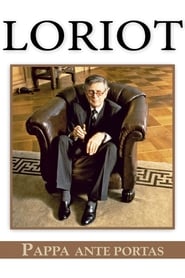 Heinrich Lohse a strict and highly...
Heinrich Lohse a strict and highly...Pappa ante Portas 1991
Heinrich Lohse, a strict and highly efficient purchasing manager at a company bulk-orders 40 tons of mustard and enough typewriting paper for 40 years just to get discount. Heinrich's boss decides it’s time for him to retire early. Heinrich suddenly finds himself with nothing to do—except micromanage his household, much to the dismay of his wife Renate and their son Dieter
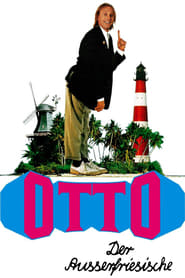 Otto is the only one who...
Otto is the only one who...Otto – The Alien from East Frisia 1989
Otto is the only one who is able to save his Frisian fatherland; but he needs the help of his brother, who is abroad. But his brother does not want to fulfill what he has sworn as a child. So it takes Otto a while to convince him while time is running low for his plans to save East-Frisia.
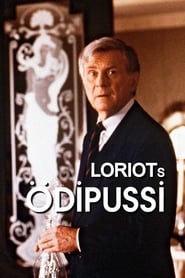 Paul Winkelmann is the CEO of...
Paul Winkelmann is the CEO of...Ödipussi 1988
Paul Winkelmann is the CEO of a successful business in Hamburg that he took over after the death of his father eight years ago. But he is still strongly dominated by his 78 year old mother who cares for him as a child, and who cannot understand why he took an apartment on his own after all these years. The real "problem" starts when Paul gets to know psychologist Margarethe Tietze whose relationship to her parents is also not so easy after all.
 In this quirky romantic comedy Evelyn...
In this quirky romantic comedy Evelyn...Evelyn and the Men 1987
In this quirky romantic comedy, Evelyn, a charming yet independent woman, finds herself entangled in a series of absurd relationships with eccentric men. As she navigates the chaos of romantic misunderstandings and social expectations, Evelyn seeks a meaningful connection, learning that true love is not about pleasing others, but finding herself. Directed by Loriot, the film combines sharp social satire with his signature dry humor, offering a witty exploration of love, gender roles, and the absurdities of romance.
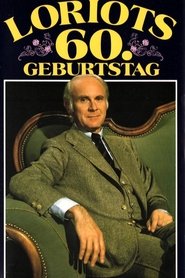 Its Loriots birthday Reason enough to...
Its Loriots birthday Reason enough to...Loriot's 60th Birthday 1983
It's Loriot's birthday. Reason enough to show him as he really is. Evelyn Hamann interviews him in the TV studio where he always records his show. A lot of guests are invited, mostly people who played in Loriot's show, and a big surprise is announced for the end. - This fake celebration shows Loriot as a bitter old man, his guests as humorless bourgeois and Evelyn Hamann as an overtaxed presenter who can't save the show.
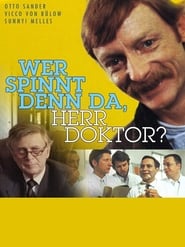 Patient No 7 a man who has...
Patient No 7 a man who has...Who's Going Crazy Here, Doctor? 1981
Patient No. 7, a man who has been wrongly committed to a psychiatric hospital for years, escapes and embarks on a chaotic journey through the outside world. Disguised as a painter, he causes uproar with his innocent yet eccentric behavior, disrupting the lives of strangers. Along the way, he befriends Marlene, a young woman fascinated by his unconventional charm, much to her jealous husband's frustration. As the line between sanity and madness blurs, the film humorously explores the absurdity of societal norms. Featuring a memorable cameo by Loriot, this quirky satire questions who’s truly "crazy."
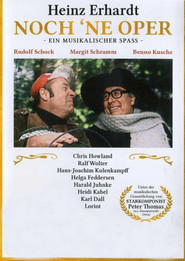 In this hilarious opera parody Loriot...
In this hilarious opera parody Loriot...Another Opera 1979
In this hilarious opera parody, Loriot delivers a comedic take on the pretentiousness of the operatic world. The plot revolves around a fictional opera production that spirals into absurdity as egos clash, misunderstandings abound, and everything goes hilariously wrong. Through a series of farcical and exaggerated situations, Loriot brilliantly mocks the pomp and circumstance of opera while showcasing his signature dry humor and love for absurdity. Noch 'ne Oper is a sharp and witty satire of high culture’s often ridiculous nature.
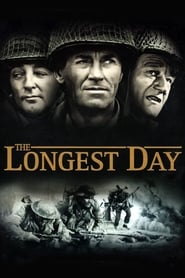 The retelling of June 6 1944 from the...
The retelling of June 6 1944 from the...The Longest Day 1962
The retelling of June 6, 1944, from the perspectives of the Germans, US, British, Canadians, and the Free French. Marshall Erwin Rommel, touring the defenses being established as part of the Reich's Atlantic Wall, notes to his officers that when the Allied invasion comes they must be stopped on the beach. "For the Allies as well as the Germans, it will be the longest day"
 Wunderbar takes on a new meaning...
Wunderbar takes on a new meaning...The Miracle of Father Malachia 1961
"Wunderbar" takes on a new meaning in this routine satire by Bernhard Wicki about a bar that is miraculously transported by God Himself to a nearby, new location on an island. The nature of the miracle is a bit strange, but it comes in answer to Pater Malachias' prayers to get the sin-ridden place out of the center of the city. The good and naive Malachias is subtly played by Horst Bollimann. Once this miracle of relocation has occurred, the sharks and entrepreneurs, who would bilk both the faithful and the curiosity-seekers alike, crop up like an unwanted epidemic. The mercenary and the sacred clash, as many try to find deeper meaning in what has happened, and Pater Malachias starts to doubt the wisdom of his original prayer.
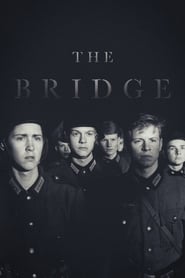 A group of German boys are...
A group of German boys are...The Bridge 1959
A group of German boys are ordered to protect a small bridge in their home village during the waning months of the second world war. Truckloads of defeated, cynical Wehrmacht soldiers flee the approaching American troops, but the boys, full of enthusiasm for the "blood and honor" Nazi ideology, stay to defend the useless bridge. The film is based on a West German anti-war novel of the same name, written by Gregor Dorfmeister.
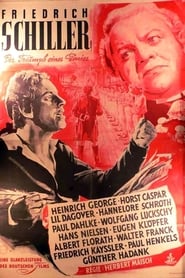 The young Schiller whose heart and...
The young Schiller whose heart and...Friedrich Schiller – The Triumph of a Genius 1940
The young Schiller, whose heart and soul are writing and poetry, is forced into the military academy (the pride and joy of the Duke of Württemberg). Schiller is disgusted by the everyday routine of the military, always back and forth between breeding and drills. Conversation, conflict or even critique are discouraged – the oppression insufferable for the young rebel. Disgusted by the brutality, he writes his drama "The Bandit", which he would later publish anonymously. But following a frank conversation with the Duke, Schiller is dishonored and must leave the land.
 TV special to celebrate the renowned...
TV special to celebrate the renowned...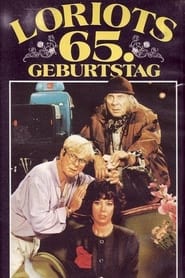 TV special that celebrated the comedian...
TV special that celebrated the comedian...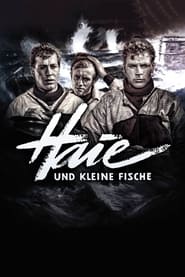 Four young German naval cadets begin...
Four young German naval cadets begin...